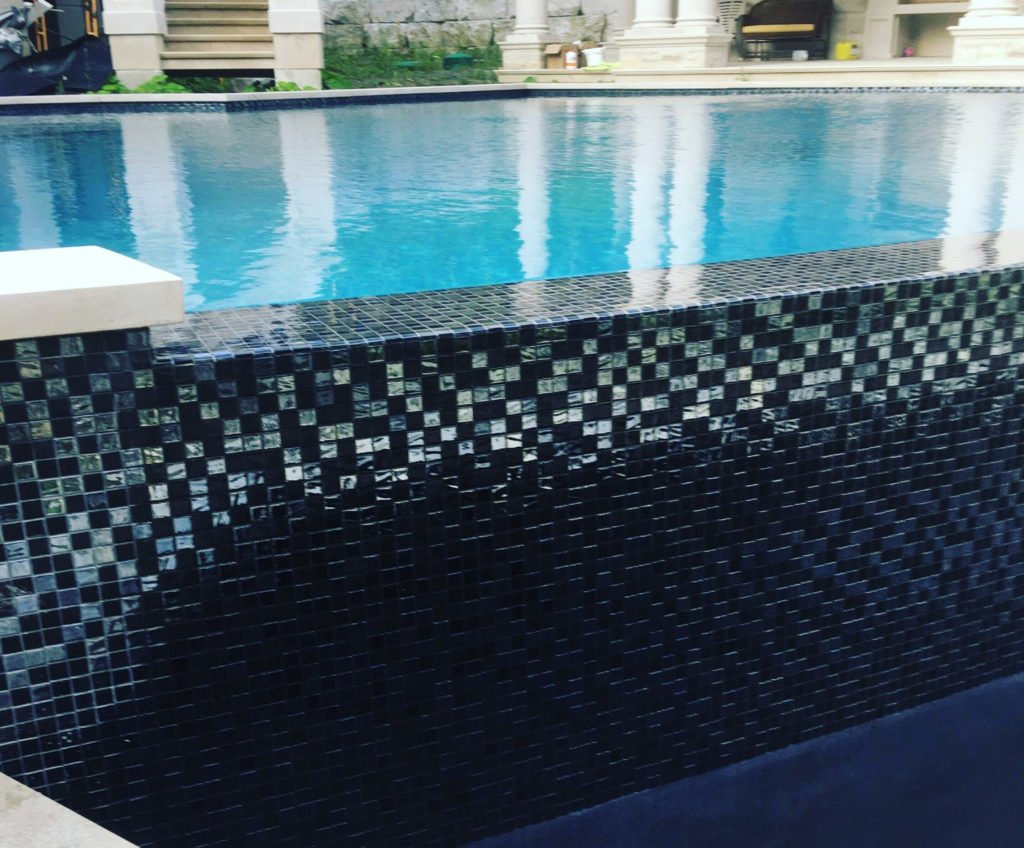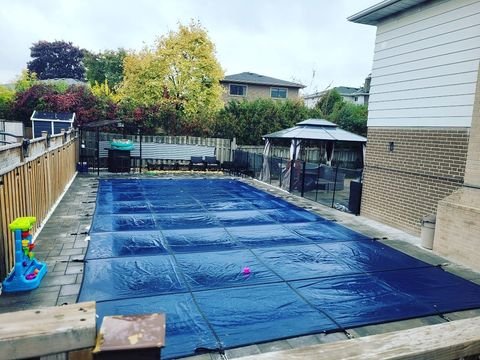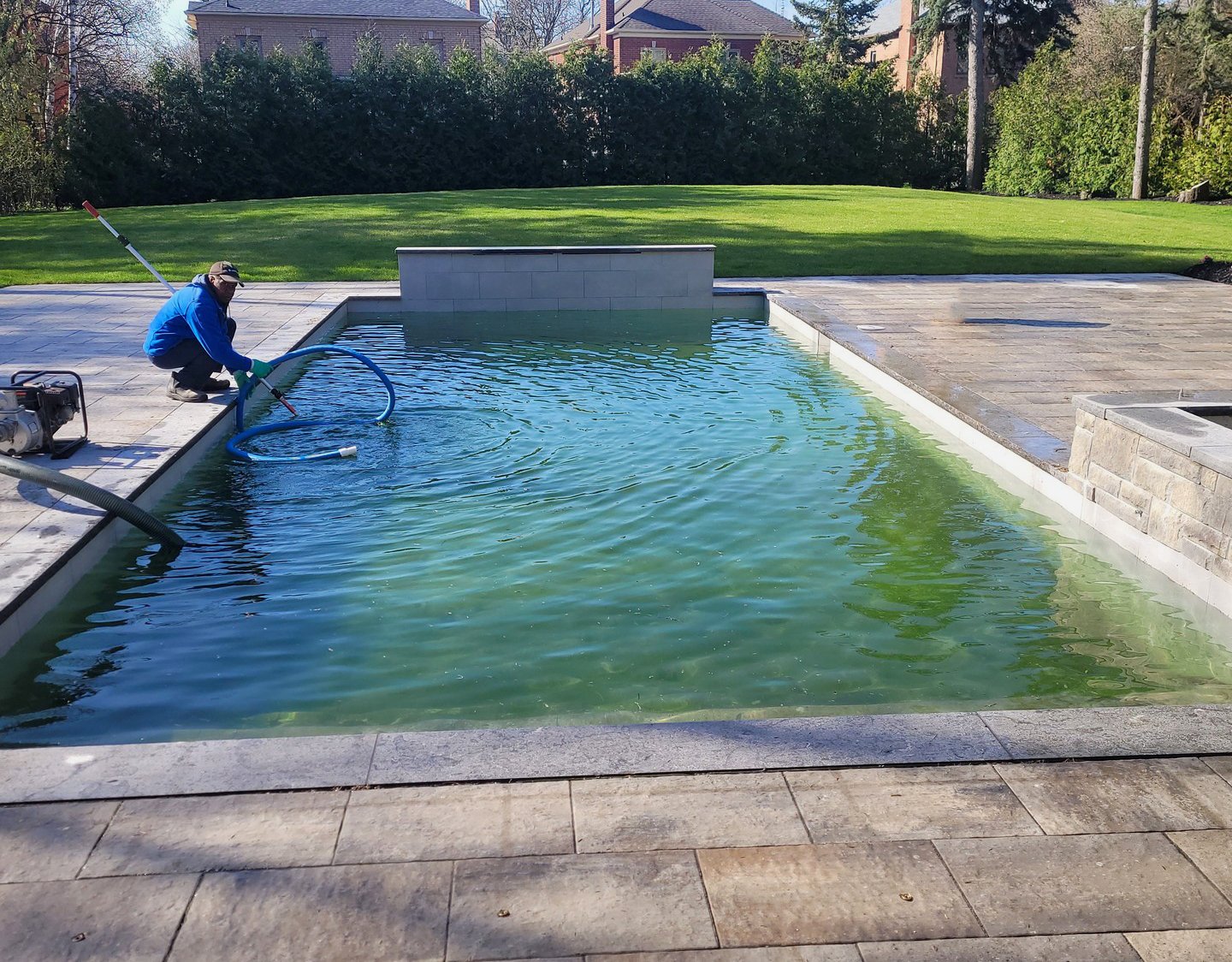There are numerous benefits to owning a concrete pool. It may be constructed in any size and shape and can last for up to 50 years. Maintaining a concrete pool is essential for keeping it in good condition and preventing potential problems from arising. It can be time-consuming, but the rewards are worth it. Proper maintenance helps to extend the life of the pool and keep it looking clean and inviting.
All of the elements of concrete pool maintenance are important, including regular cleaning, treating the water, and inspecting the pool and its components. Let’s take a look at what you can expect from your concrete pool to understand the basic steps that are required for concrete pool maintenance to ensure optimal performance and longevity.
How Are They Made?
Compared to vinyl and fibreglass pools, concrete pools offer one significant benefit: You can have them built in whatever size or shape you like. This is due to the pool not being prefabricated, as opposed to being made of vinyl or fibreglass. Instead, a hole is created with the pool’s desired form and depth. The walls are fitted with rebar after the hole has been created. The concrete that will be poured will be supported by the rebar. The walls and floor of the pool are created by spraying a substance known as gunite over the rebar after it has been set in place. Sand and cement are combined to make gunite, which is in concrete form.
The walls and floor of the pool are covered or treated in the same way when the gunite has dried and hardened. Plastering over the gunite is a typical method for smoothing it out. The rough gunite is covered by a smooth layer of plaster, shielding swimmers from scrapes and other harm. Tile can also be used to cover the concrete in a smooth manner. This design can be seen in many public pools because it is quite conventional. Concrete may occasionally just be painted. In this instance, thick paint is required for the pool in order to cover the rough gunite surface.

How to Care for Concrete Pools
As an owner, you need to take extra care of your concrete pool in specific ways. In addition to keeping the chemical balance in your water consistent, you must keep the concrete itself clean. Simply brushing the walls is the most effective way to accomplish this. To clean your pool’s walls and floor, you can use a telescoping pole and a firm bristle brush.
You can think about cleaning your concrete pool in the same way that you think about cleaning your teeth. Similar to how you would remove plaque from your teeth, the objective is to remove bacteria or algae that have accumulated on the porous surface of the concrete. Wait a few minutes after brushing to let the loose germs and algae fall to the pool’s bottom. The debris you brush off can then be collected after cleaning the pool’s bottom with a pool vacuum.

The pool will ultimately need to have its surface replaced, regardless of how carefully you maintain the concrete. You’ll need to drain the pool to accomplish this. Make sure you are aware of any local laws that may govern how pool water is disposed of before draining the pool. Pouring pool water down storm drains might not be a good idea because it contains chemicals. You might not even want to pour the water on your lawn if it is too acidic because it could harm the grass and plants. You also want to prevent flooding your lawn if your pool is big and your lawn is not spread out.
Using Chemicals for Concrete Pool Maintenance
A concrete pool may become infected by algae if it is not properly cleaned frequently. It is sometimes necessary to acid wash the pool if it has been infected with algae or if insufficient cleaning has left stains. Acid cleaning involves burning off the plaster or exterior layer of concrete with a strong acid solution. This shows an entirely new and uncontaminated layer underneath. If done correctly, it can give your pool a wonderful refresh. However, since this procedure uses harsh chemicals, it might be preferable to leave it to experts.
Acid washing works by removing a thin coating from your pool’s walls and floor. As a result, it can only be done a certain number of times. It is best to save this rather extreme method of cleaning for severe stains and damage that cannot be eliminated through other means.
Cracking
Concrete is prone to breaking because it is stiff. Usually, cracking happens when the soil near a pool moves. This can be the result of the earth settling or a shift in the water table. Seismic activity may possibly be the cause. This is typical with concrete pools and is not cause for alarm. However, cracks must be repaired as soon as they are discovered. If little cracks are not fixed, they can grow into major issues very rapidly. Small cracks can frequently be repaired by caulking. If they were to spread, a complete resurfacing or even more significant repairs would be necessary.
A Professional Approach
Having a professional inspect the pool every year will help identify any potential problems before they become serious. Many pool companies also offer programs that include having the maintenance done for you. With the right knowledge and dedication to regular maintenance, a concrete pool can remain in good condition and continue to provide enjoyment for many years.

